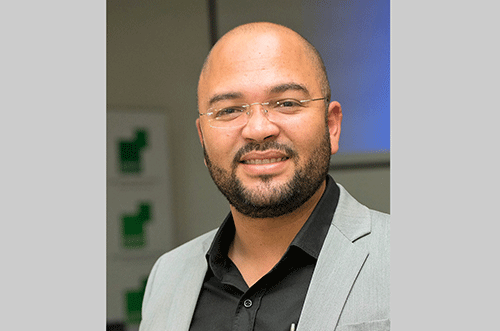‘Don’t judge a fish by how it rides a bicycle’ is my favourite saying, as I believe it encapsulates the experience of some organisations offering advice. It is my view that one size does not fit all. Teaching a fish to ride a bicycle simply does not work.
The notion that we can impose generic solutions on individuals facing specific challenges just does not hold water. This led me to reflect on Artificial Intelligence (AI).
AI has tremendous potential to drive Africa’s development, innovation and economic growth.
If harnessed and leveraged within an African context, it becomes a strategic asset that can accelerate progress. I like to refer to it as African artificial intelligence, AAI.
The potential of AAI is vast, covering sectors such as healthcare, agriculture, finance and education. By leveraging AI, African nations can tackle the continent’s most pressing issues, including poverty, healthcare access and educational inequities. With more than 60% of Africa’s population under 25, embracing AAI can elevate Africa into a socio-economic powerhouse.
However, AI is predominantly programmed in English (with large language models) around the globe. Ignoring local languages can lead to significant biases, especially in Africa. Therefore, investing in AAI is essential. AI models represent not only identity but also a strategic concern.
In Africa, AAI can transform healthcare by improving diagnostic accuracy, predicting disease outbreaks and personalising treatment plans. For example, AAI-powered diagnostic tools can assist healthcare professionals in remote regions to diagnose diseases like malaria and tuberculosis more swiftly and accurately, especially if the AAI is trained on regional data.
AAI could be employed to analyse extensive local datasets, aiding in predicting and managing disease outbreaks, facil itating timely interventions, and ensuring effective resource allocation, ultimately fostering healthier populations across the continent.
With many of Africa’s economies still based on agriculture, AAI can significantly enhance productivity and sustainability through precision farming and predictive analytics.
This technology can help farmers optimise crop yields, minimise waste and manage resources more efficiently.
By analysing weather patterns, soil conditions and crop health using AAI, farmers gain actionable insights that empower them to make informed decisions and improve agricultural outputs.
Given Africa’s youthful demographic, education is crucial, yet often difficult to access.
When developed thoughtfully, AAI has the capacity to revolutionise education in Africa by providing personalised learning experiences, enhancing access to quality education and addressing teacher shortages.
An AAI-driven educational platform can adapt to individual learning styles and paces, ensuring students receive tailored support and resources.
It has the potential to propel Africa educationally within a generation, allowing it to catch up with the rest of the world – truly realising the concept of ‘Africa Rising’. Many recognise and appreciate AI’s transformative capabilities.
The African Union (AU) has established a Continental Artificial Intelligence Strategy, aiming to promote an Africa-centric, development-focused approach to AI that emphasises ethical, responsible and equitable practices.
However, what is lacking is funding and investment that embrace the vision of how transformative AI could be for all of us in Africa. If large international companies implement their Western-centric AI across our continent without addressing issues unique to Africa’s socio-economic context, we will continually lag.
That is why we need AAI.
It must incorporate policies that ensure AI applications respect cultural values, protect individual rights and encourage social inclusion.
One of the major challenges is the digital divide. To fully capitalise on AAI, we must invest in digital infrastructure, enhance internet connectivity and promote digital literacy throughout the continent. Local experts and companies must play a central role in the AAI revolution across Africa.
Companies that are investing in and profiting from the AI revolution should consider Africa as their next growth market. The potential is enormous.
AAI can be crucial in Africa’s development journey.
Furthermore, AI can help conserve and enhance African culture by promoting local languages, customs and knowledge systems through AI-driven applications.
This is a deeply personal issue for me. There is much more to discuss than can be covered in a single article. We need to engage in conversations about this, and urge companies to support and invest in AAI.
*Kehad Snydewel works at Green Enterprise Solutions (Pty) Ltd.


